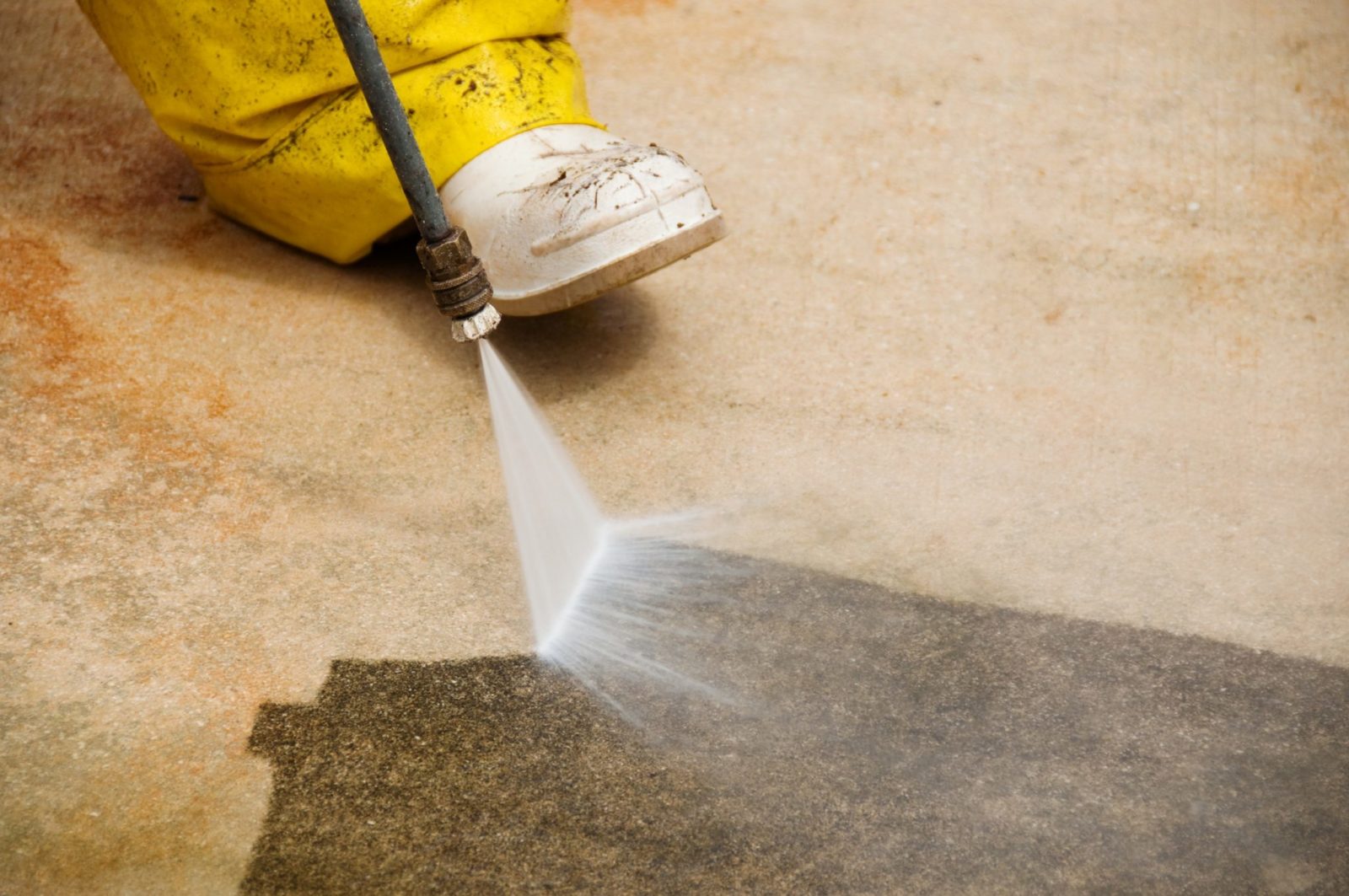

Paved driveways add a great deal of beauty to your home by giving it a more sophisticated look, providing a proper surface for parking and walking. Hardscapes are known for their longevity, durability and easy cleaning, which makes them a good choice for homes. There are several material and style options to choose from when it comes to paved driveways, such as poured concrete, asphalt, stamped concrete, interlocking pavers, chip sealed, and exposed aggregate, among others. However, to ensure that your driveway serves you for years to come, you should learn how to clean and maintain it.
Cleaning Paved Driveways

It is essential to clean your paved driveways after regular intervals. If left uncleaned, they usually become dirty with debris, grease, and oil marks, not to mention moss, algae and several unwanted plants that start growing between the spaces of blocks and concrete. This gives an untidy look to the pavement and decreases the durability and strength of the driveways.
Due to these reasons and more, experts recommend cleaning driveways on a regular basis. The standard way of cleaning the paved driveways is sweeping it thoroughly to clear off debris, remove any plants or bushes, and then apply cleaning solutions before finally scrubbing and rinsing the driveway.
If you want to save yourself from all these hassles, you can also go for an easier way that is professional pressure washing your paved driveway.
Pressure Washing Paved Driveways
Pressure washing is the technique in which water is released from a compressed nozzle at different pressure ranges. This method helps in getting rid of the dirt and cleaning the surfaces more easily and quickly with less scrubbing. However, you must know how to handle the pressure washing equipment and select the right nozzle and psi for cleaning the pavement, otherwise the water pressure can severely damage the paved driveways.
Preparing for Pressure Wash
When you prepare for pressure washing in Vancouver, you must follow proper steps to ensure your paved driveway suffers no damages.
- Always start with clearing the area from furniture, toys and similar stuff.
- Sweep the driveway thoroughly; do not rely on high water pressure to clean the paved driveway.
- Get rid of any rooted plants or bushes growing in the driveway.
- Apply a quality cleaning liquid to the paved driveway. This helps in getting rid of any algae, moss, and stains more easily. If there are any grease and oil marks, apply an oil cleaning solution and wait for the instructed time. Avoid cleaning the growths and marks solely by pressure washing.
- Select the correct nozzle, safe psi, and accurate distance from the surface for cleaning the paved driveway. This helps in washing out the algae and moss and removing the grease and oil marks.
- Rinse the paved driveway to get rid of any left cleaning liquid.
Eluding Damages from Pressure Washing
Pressure washing in Vancouver, when done in a deplorable manner, causes serious damages to paved driveways, as they are usually made of concrete and asphalt and are set in sand. Too much pressure washes the sand off on which the blocks are sitting – that is why you should never aim the water jet on the joints of paves. Pressure washing causes visible damage to the surface in the form of pitting, lines or general surface degradation. So, you should be aware of all the possible damages that pressure washing can cause and get the equipment and use it accordingly.
As explained, there are a lot of things you need to consider before pressure washing your paved driveway. If you don’t want to cause damage, call in the professional pressure washers in Vancouver from Quick Sidekick to handle the job, giving you peace of mind that your driveway will be safe and sparkling clean at the end.